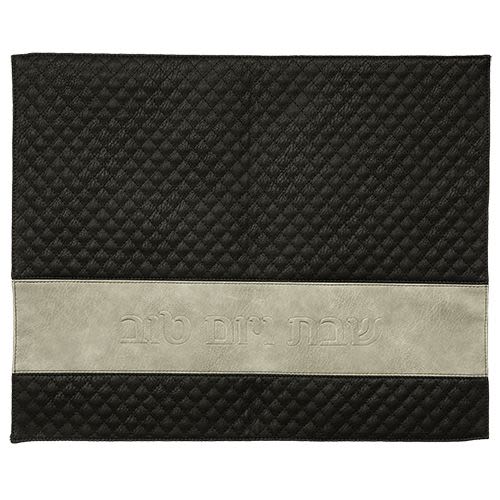
Chocolate-covered Poison
A life without daily self-evaluation is like a life of chocolate-covered poison. People stuff it in their mouths and gobble it down, then suffer the bitter consequences...

Translated by Rabbi Lazer Brody
In Forest Fields, Part 18
What’s the point of all the bodily lusts?
Rebbe Nachman calls self-evaluation. “self-composure.” He says (Likutei Moharan II:10), “People are distant from Hashem because they lack self-composure… (they should ask themselves) what’s the point of all the bodily lusts and the extra-bodily lusts such as prestige; then, they would surely return to Hashem.”
Once we learn the teaching of our sages, we see that Rebbe Nachman’s above thoughts are no nuance. Rebbe Nachman is therefore very firm in requiring us to devote an hour a day to personal prayer and self-evaluation.
The path through the maze
Our daily self-evaluation session is a golden opportunity to look objectively at what we’ve done during the previous 24 hours on the three levels of thoughts, speech, and deed. Then we can reexamine our priorities and make a plan of action to implement the changes that we’d like to make.
The temptations of transgressions and bodily appetites are like chocolate-covered poison: they’re sweet, tasty and aromatic in the mouth, but once they’re  swallowed – look out! A life without daily self-evaluation is like a life of chocolate-covered poison. People stuff it in their mouths and gobble it down, then suffer the bitter consequences for years. With daily self-evaluation, we stop and ask ourselves, “Hey, what am I doing? Is this good for me? What did I benefit from 30 minutes of overeating (or fill in any other bodily appetite or transgression that caught you off guard)?” Such daily self-evaluation gives a person the strength and composure to overcome the evil inclination.
swallowed – look out! A life without daily self-evaluation is like a life of chocolate-covered poison. People stuff it in their mouths and gobble it down, then suffer the bitter consequences for years. With daily self-evaluation, we stop and ask ourselves, “Hey, what am I doing? Is this good for me? What did I benefit from 30 minutes of overeating (or fill in any other bodily appetite or transgression that caught you off guard)?” Such daily self-evaluation gives a person the strength and composure to overcome the evil inclination.
 swallowed – look out! A life without daily self-evaluation is like a life of chocolate-covered poison. People stuff it in their mouths and gobble it down, then suffer the bitter consequences for years. With daily self-evaluation, we stop and ask ourselves, “Hey, what am I doing? Is this good for me? What did I benefit from 30 minutes of overeating (or fill in any other bodily appetite or transgression that caught you off guard)?” Such daily self-evaluation gives a person the strength and composure to overcome the evil inclination.
swallowed – look out! A life without daily self-evaluation is like a life of chocolate-covered poison. People stuff it in their mouths and gobble it down, then suffer the bitter consequences for years. With daily self-evaluation, we stop and ask ourselves, “Hey, what am I doing? Is this good for me? What did I benefit from 30 minutes of overeating (or fill in any other bodily appetite or transgression that caught you off guard)?” Such daily self-evaluation gives a person the strength and composure to overcome the evil inclination. In his classic book “The Path of the Just,” Rabbi Moshe Chaim Luzzato describes this world as a maze of paths, and whoever has no control over his evil inclination is trapped within the maze without knowing which path to take to reach his destination. If he doesn’t know the way out, he certainly can’t lead others out. But, the select few who rule over their evil inclinations know the way out of the maze and are therefore capable of leading others. We can trust their advice.
Rabbi Moshe Chaim Luzzato is one of the lofty tzaddikim who totally controlled his evil inclination. His “The Path of the Just” has been a leading handbook for those who seek Hashem for over three centuries already. Rabbi Luzzato calls upon the reader to set aside time for secluded personal prayer, observation, self-evaluation, and implementation of ways to purify his deeds and his character. In order to correct ourselves, we must first take a good look at ourselves.
The advice of all the great tzaddikim – and not just Rebbe Nachman – is to implement daily personal prayer and self evaluation in our lives. This is the time-tested path to character perfection and realization of personal potential.
The Rambam teaches that we need not expose our faults and misdeeds to others. The way to deal with them, though, is through our daily personal prayer session with Hashem.
The truly straight path
Rebbe Nachman lists another virtue of personal prayer that includes self evaluation and confession of sin (see Likutei Moharan I:4), namely, that when a person confesses his misdeeds every day, then Hashem leads that person on the path of a true soul correction according to the his individual spiritual needs. Consequently, such a person succeeds in fulfilling his mission here on earth, which was the reason his soul was sent here in the first place.
On the other hand, a person who neglects personal prayer, self-evaluation, confession and the consequent self-improvement and soul correction that result, has no idea where he’s going in life. He doesn’t know what his mission is at all. Lacking a clear destination, a person certainly has no idea which path to choose. The result is wasted potential, wasted time, and an unfulfilling life.
As long as a person fails to understand what he’s doing here in this world and why he came here, he won’t be able to correct himself, much less correct his previous reincarnations. If he fails to incorporate daily soul-searching and teshuva into his life, he’ll simply accumulate more and more uncorrected misdeeds. Imagine that a small misdeed is only a tiny blemish on the soul; but, if uncorrected, the many accumulated blemishes soon become a thick dark cloud that totally blocks Divine light from reaching the soul. Cut off from Hashem’s light, a person becomes arrogant and drifts away from true Torah observance. He deviates from the truly straight path that would have been his path to greatness, and walks a crooked path to personal and spiritual oblivion.
Daily personal prayer and self-evaluation enable a person to “fine-tune” and correct himself every single day. Hashem readily forgives him of his misdeeds, and leads him by the hand to his individual tikkun, or soul correction. Such a person is humble, spiritually aware, optimistic, and gratified. He lives a life of true emuna, for he maintains a strong connection with Hashem.
To be continued.













Tell us what you think!
Thank you for your comment!
It will be published after approval by the Editor.